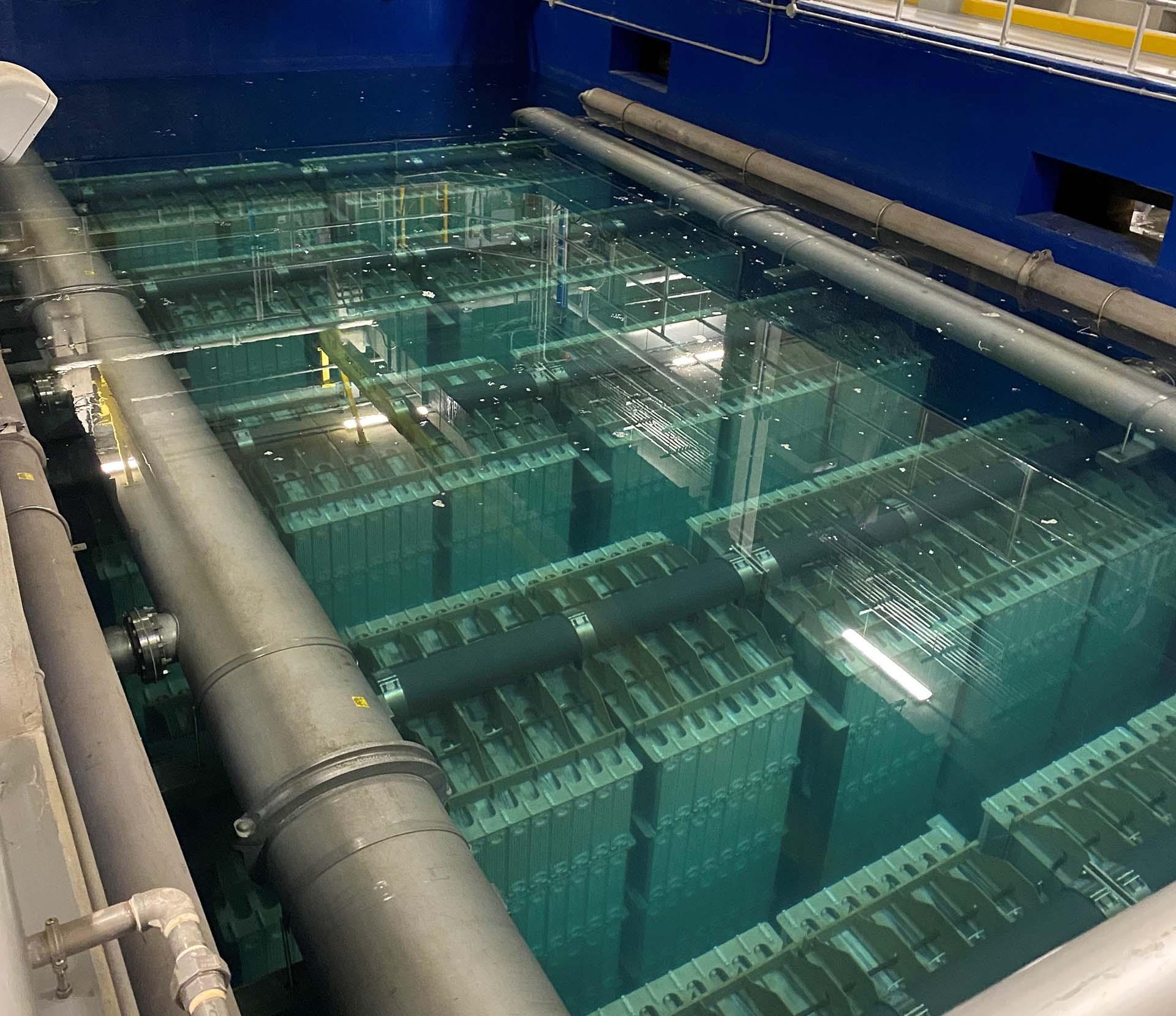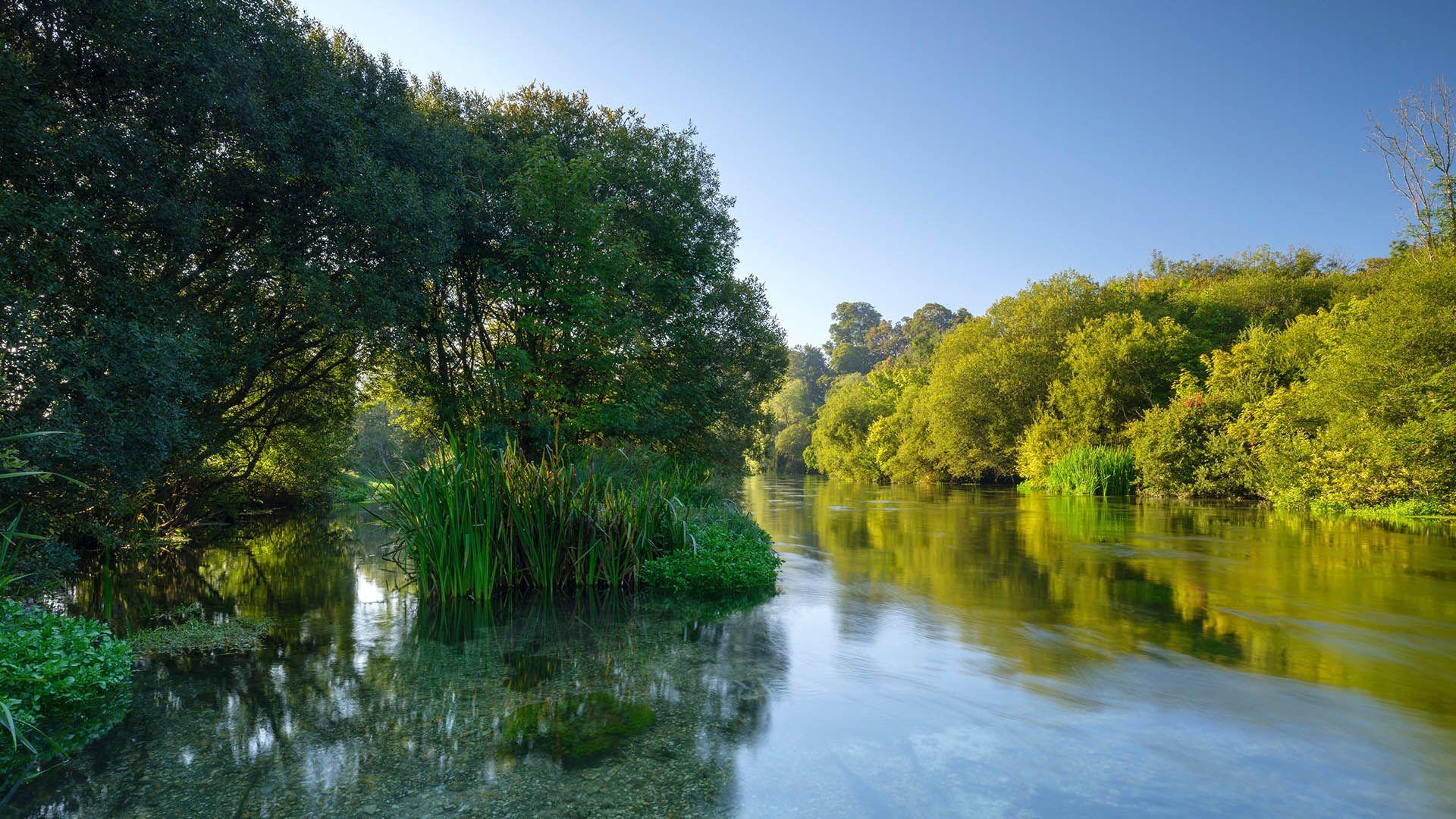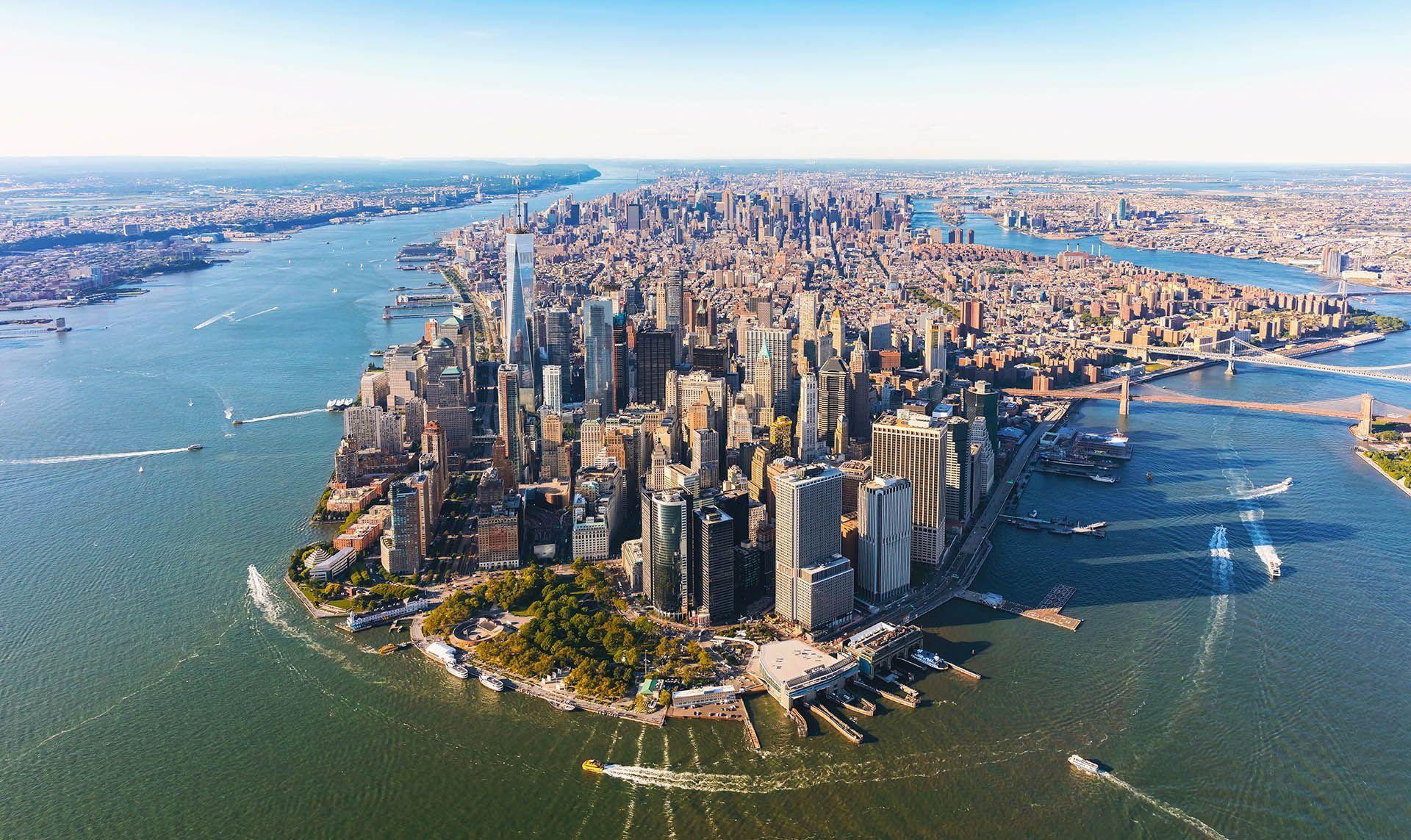
Minimizing waste, maximizing value: Upcycling water treatment technologies
Applying engineering ingenuity to extend the life of water treatment technologies and increase treatment capacity on the same footprint.
The Region of Peel has long been committed to sustainability and stands at the forefront of innovation in water treatment practices. In 2016, AECOM partnered with the Region and Veolia to introduce a ground-breaking water treatment process at the Lorne Park Water Treatment Plant: membrane gravity filtration (MGF). This new treatment process not only uses the existing footprint to increase treatment capacity but also champions the upcycling of old membrane modules that would otherwise be discarded, contributing to a more sustainable and environmentally responsible water treatment process.
MGF dramatically simplifies the existing vacuum driven/submerged membrane filtration process by operating the membranes gently at a low flux. Although this approach requires initially higher capital costs for the MGFs since more membranes are required, over the long-term the membranes can be run sustainably by gravity. This means eliminating the need for energy-intensive vacuum pumps along with significantly reducing the need for chemical cleaning as membranes endure less stress, resulting in a substantial decrease in fouling per square meter – consequently reducing associated operational costs.
Based on the success of the full-scale trial completed in 2017 with the installed modules, the Region completed a permanent installation in 2023 that may potentially provide up to an additional 20 percent increase of treated water compared to traditional conventional filters. This new system not only helps reduce operational and maintenance costs but highlights the environmental impact that re-imagining “used” membranes can create for a sustainable solution. By giving a new lease of life to old membranes, this project showcases a circular economy model in water treatment, emphasizing sustainability and conservation.


